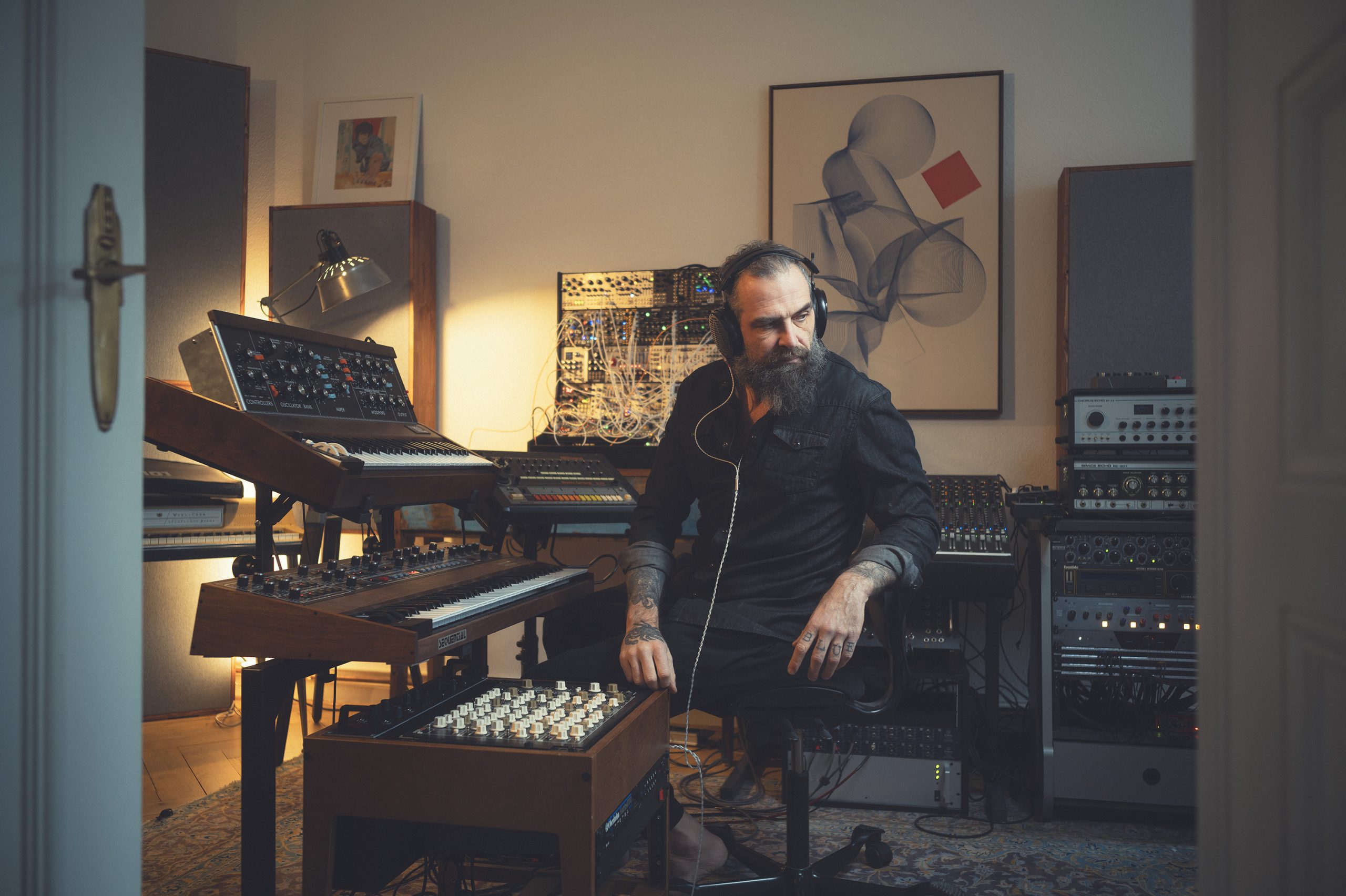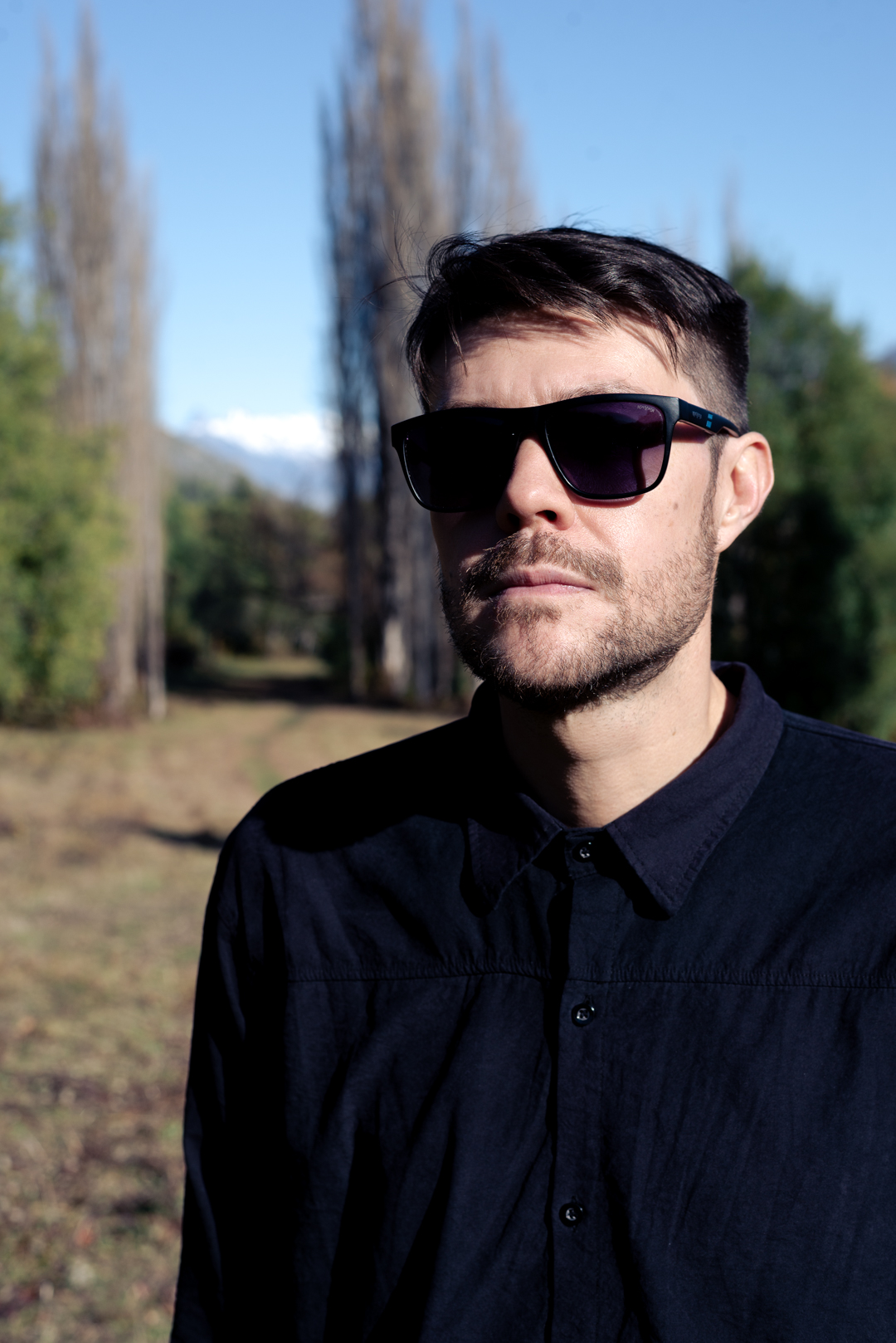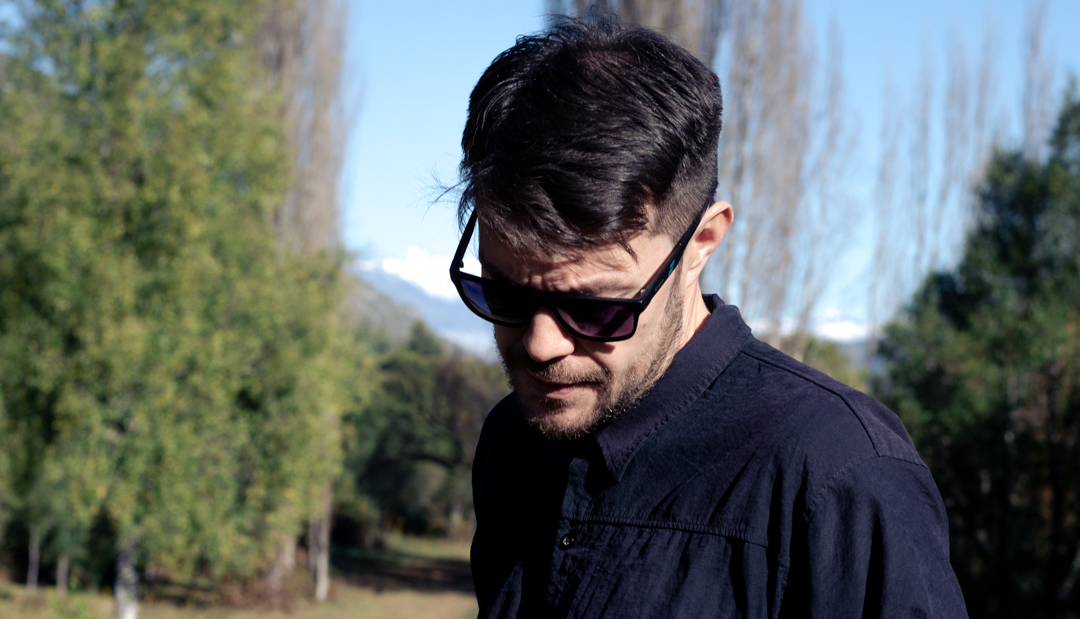Hermetics has quietly carved out a space on the fringes of experimental electronic music, where ambient drift and granular texture meet with emotional clarity. His latest work — a remix of Oora’s And Then, It Faded — offers another glimpse into that slow-blooming world, extending the original’s stillness into something even more elusive. It’s a subtle but striking piece: sparse, warm, and never overplayed.
We caught up with Hermetics to talk about the design, and how he approaches the balance between structure and abstraction.
What was the first thing that caught your ear when you heard Oora’s original version of “And Then, It Faded”?
It took me back to a time when electronic music and its scene felt more genuine, more alive. It rekindled the euphoria of trance and progressive’s golden era—immersing me in that raw simplicity, haunting darkness, and unfiltered nostalgia that defined those years.

Oora
Your remix brings in some swing and broken percussion but keeps the mood pretty restrained. What was the idea going in?
My main intention was to let the original melody shine. Its atmosphere is so pure—rich and intricate, yet beautifully simple—that the percussion had to stay in the background. Rather than complexity, I focused on crafting percussion with a strong sense of texture and aesthetic character.
You’ve released on labels like R&S, ZZK, Multi Culti, and Optimo. How do you see your sound connecting the dots between them?
I wouldn’t say there’s a direct connection between them, but what stands out is how different each label is from the next. When I create music, I don’t think about labels or genres—I enter a state of play, freedom, and pure eclecticism, free from expectations. Perhaps each label reflects a different chapter, a different season of my life.
Looking back on your earlier work, are there any tracks or phases that still feel close to what you’re doing now?
I feel that what I’m creating now is the convergence of all my artistic facets—an integration of everything that has inspired me since the very beginning: my techno roots, my trance explorations, my ambient journeys, and my deep love for cinema and the cinematic atmospheres that have always echoed through my music. All of it has come together in the present. This is the moment where I feel most whole, and most creatively free.
You’ve been active across a few different corners of the electronic scene. How do you think the broader underground has shifted in recent years?
I feel that, musically, we’re living through a kind of revolution. Little by little, the rigid boundaries of purist genres are dissolving, making way for a new era of eclecticism and bold fusions that once felt unlikely. There’s a surge of creativity that’s both exciting and genuinely innovative.
On the other hand, when it comes to parties, club culture, festivals, and raves, the underground scene has, in many cases, become more superficial. The DJ has often been reduced to a hollow, narcissistic entertainer, and the crowd to a sea of spectators—zombies who no longer dance, but instead film everything with their phones just to prove they were there. It’s disheartening. Still, there are exceptions.
We’re living in a moment of sharp contrast—a polarizing time where some of the best and worst aspects of the culture are unfolding simultaneously.

Hermetics
Do you find remixing a good way to reset creatively, or is it more of a one-off thing depending on the project?
For me, remixing is a refreshing and deeply personal way of connecting with music. I’m usually the one asking to remix a track, rather than waiting to be approached—because I seek the experience, the act itself, rather than passively waiting to be invited. I love the process of co-creation, of reinterpreting something that already exists, of offering a new perspective and playing with it.
There’s a sense of creative play in remixing—but also a deep intimacy. Being allowed to step into someone else’s sonic world, into the soul of their work, and reshape it, is something sacred. That’s why I approach remixing with care, with subtlety, and with artistic humility. For me, a remix is never just a remix—it’s a dialogue, a transformation, and a responsibility.
What kind of music or artists have been on your radar lately — anything that’s shaped what you’re making now?
I’m constantly drawn to ambient, jazz, and all kinds of instrumental, atmospheric, cinematic, or experimental music. Lately, I’ve been especially inspired by Jonny Nash, with his ambient guitar work, and Matthew Halsall’s deeply spiritual approach to jazz. I curate a public playlist on Spotify called Plenum, where I collect and regularly update a selection of tracks that reflect what I’m currently listening to in these genres.
On the more dance-oriented side, I really admire what artists like Seb Wildblood, Floating Points, Four Tet, Chaos In The CBD, Gold Panda, and Bodhi are doing—there’s a richness and emotional depth in their sound that resonates with me.
What’s the scene like in Bogotá right now? Are there any venues, collectives, or artists people should be paying attention to?
I haven’t lived in Bogotá for over 25 years. These days, I’m based in Patagonia, Argentina. Before that, I spent many years in Buenos Aires, a city with a vibrant scene and a wealth of truly inspiring artists like Chancha Vía Circuito, Sidirum, Jin Yerei, and others. It’s also where the acclaimed label ZZK was born—a label I’m proud to be part of.
Do you feel rooted in a local scene, or has your process always been more inward-facing and studio-based?
I’ve always existed somewhat on the fringes of local scenes. My style is constantly evolving, and my eclectic nature makes it hard to fully align with any one scene or belong to a specific community. Lately, I’ve been deeply immersed in studio work, but I’m feeling the call to take my DJ set further—this year and next, I’m aiming to expand my live presence and map out a European tour.
Oora – And Then, It Faded (Hermetics Remix) is out now on Otherness Records



